Ancient Greece
| série: | Histoire (Grèce) |
| éditeur: | Thames+Hudson |
| auteur: | Green Peter |
| classement: | biblio502 |
| année: | 1994 |
| format: | broché |
| état: | TBE |
| valeur: | 10 € |
| critère: | *** |
| remarques: | English book Ancient Greece, a concise history I/ from stone to iron: the prehistoric period 1/ sources of knowledge - the influence of Greece in Western society, beginning of Greek history: 776 BC = first olympic games, the world is supposed to have been created by God is 4004 BC - three civilizations from the Bronze Age onwards: a) the Cycladic (Aegan islands) b) the Minoan (Crete) c) the Helladic (Greek mainland) - way of discovery for the historiography: myth and legend, climate changes, physical objects such as tool, pottery, etc, weapons and constructions as well as the technique of stratification by layers and of course the writing when available 2/ climate and geography - combination of summer heat, brief but torrential winter rains as well as long spells of winter sunshining were ideal for long-germinating plants such as the fig, wine and olive = basic core of Mediterranean farming; wheat and timber had to be importedd, on the other hand, the dry clear air of Greece caused few epidemics in comparision with other European countries, war tended to be seasonal affair - Sparta was rather highland (grazing) and Attika+Corinth were lowland, the population was mainly divided into three groups: herdsmen, farmers and fishermen/traders - the breaking up of the land into a serie of isolated cantons tended to produce small self-sufficient states which encouraged the "polis" civilization - Greece soon ceased to be economically self-supporting, thus favouring colonization of foreign territories (Egypt, Sicily, south Russia) for securing grain, timber and precious metals 3/ Minoan Crete - perhaps known as the Atlantis in Plato's Timaeus, this civilization lasted from 2500 BC to 1400 BC (known as the Palace civilization with the two main cities of Knossos and Phaestos) - after that period, Crete was ruled by the Mycenian dynasty but the Minoan civilization was known for its elegance, esp. with the frescoes giving much information about Minoan social and religious life - the Cretans may be considered as high-class hedonists with a strong religious sense - an earthquake in Creta (140 BC) destroyed most of the palaces 4/ the Mycenian Age - the first Aegean man lived possibly as early as 9000 BC but the most important change came with the transition from a hunting to a farming economy and a metal-working culture (2500 BC = early Helladic Age) - at about that time invaders, called Minyans, arrived from Central Asia and established themselves in Greece; they can be regarded as the first true Greeks - at about 2000 BC there were (Middle Helladic Age) three great Mediterranenan civilizations: Egypt, Creta and Mycenaean characterized by the city of Mycenae - 1500 BC was the apogee of the Mycenaean civilization and 1450 BC a Mycenaean dynasty also ruled Creta (it was probably during that time that Homer's Iliad took place) 5/ from Troy to Homer - 1400 BC foundation of Troy, famous for its textile and metal-working industries as well as horse-breeding - about 1240 BC destruction of Troy and 1100 BC extinction of the Mycenaean dynasty (being part of the Achaean civilization), mostly due to the Dorian invasion - afterwards and for about 300 years followed a period called "Dark Ages" II/ the crystallization of the city-state (750-600 BC) 1/ expansion and colonization - the Archaic period (750-480 Bc) with the colonization of the Black Sea, Sicily, Southern Italy and the franco-spanish coast - this period was also outlined by predictable tensions between the ruling class (baron = basileus) and the new trading class (access to capital) through expansion of trade as well as the consequent establishment of legal codes for the various city-states ("polis" government) - it was the beginning of civic government of rational law and order (by the reformers: Solon in Athens and Charondas in Catania) - development of "hellenism" = community of language, speech and cult in Greece - legend of Heracles, the superman, fighting the forces of nature on mankind's behalf 2/ the ghost of Thersites = first really vicious class caricature in European history (in Odyssey's book) - introduction to Greece (600 BC) of coinage (being a Lydian invention by king Cresus) - 700 BC Hesiod, a farmer-poet from Ascra, is one of the first Greek poets known with his pioneering work " Theogony" in which Greek intellectual thought may have begun 3/ men make the "polis" >> p. 61 description of the "polis" - emergence of the hoplite phalanx (700 BC) = well-drilled and well-equiped heay infantry recruited from citizens of the polis which acted as a new civic defense force; it was fighting in collective achievement (without social distinction) - the polis ideal was direct representation for every citizen with a vote, collective concentration and if possible self-sufficiency (autarkeia) - however the system of rival clan-based power persisted, known as "hetaïriai" = political clubs or associations, the aristocratic members were called "eupatrids" - emergence of democracy into two mutually destructive groups: the Few and the Many = the Oligarchs and the Populists 4/ tyrants, lawgivers, social crisis - difference between Sparta (with its system of dual kingship) and Athens (democracy followed often by tyranny) >> p. 69 description of tyranny - civil crisis originated by speculation and consequently by class distinction (the rich and the poor) until Solon introduced a new law system 5/ the individual voice - emergence of Greek lyric poetry (piece composed for accompaniment on the lyre) - in 500 BC lyric poetry gave way to drama and to prose which became the logical medium for scientific or philosophical investigation, oratory and rhetoric and narrative history - Elegy = perhaps a song with flute accompaniment, the Iambics were popular for satirical invective >> p. 78/79 description of the woman poet Sappho III/ reason, tradition and the Persian wars (600-479 BC) 1/ Solon and the Athenian economy - between 600-450 BC Greece's great revolution in thought, culture art and politics was brought to completion as can be seen partly in the development of those standing male statues known as "kouroï" - Greek artists are acquiring some knowledge of anatomy, espc. basic relationship between bone and muscle >> the Ephebe of Critios (480 BC) being the first beautiful nude in art - politically two points were of importance: evolution of democratic government in Athens and the steady rise of Persia as a great imperial power: both had inexorably to clash one another - "archaic" Greece becomes "classical" - the democracy started with Solon's legislation (573) and culminated with Cleisthenes' reforms (507) >> p.83 description of Solon who regarded the abuse of wealth as the root of all evil - development of a new middle class operating on mobile capital (traders) rather than living off their estates (landowners) - three categories of reforms by Solon: a) laws about debts, mortgage-stones and slavery, so-called "seisachtheia" (shaking of burdens) b) establishment of a People's Court (the Heliaea) giving every citizen the right to bring a prosecution c) economical measures: education (esp. in respect of trade), restrictions on import and export, subvention to foreign skilled craftsmen settling in Athens 2/ from Peisistratus to Cleisthenes - after the departure abroad of Solon for 10 years, followed a time of chaos in Athens, twice during the next decade, the archon-list was inscribed "anarchia" (no archon elected), the threat to tyranny was then practically imminent - a strong man appeared: Peisistratus (Solon's own kinsman), however at first his "coup d'état" failed and he had to go into exile but later he made a comeback with strong financial reserves (due to rich Thracian mining concessions) and with a Scythian bodyguard (later converted into Athens' permanent police force) - he died 528 BC and despite his totalitarian ruling, his reign was considered as a kind of Golden Age - Peisistratus was successful in achieving the unification of Attica into a single state (synoikismos), he introduced economic and social innovations such as a public works' scheme to control unemployment, the famous Athenian four-drachma piece (tetradrachm), public gardens like the Lyceum, state pensions, etc - he encourages also the arts and the international trade - after his two sons, Hipparchus and Hippias, proved themselves incapable of governing, a new man appeared: Cleisthenes who brought a new reform towards democracy and divided Atica into regional groups: coastal, urban and inland, each one containing a representative cross-section of the whole population - the class distinction was abolished, even the aristocrats were now accountable to their electors, Athenian democracy had at last come of age 3/ intellectual revolution: Ionia and the west - intellectual revolution based on Miletus and associated with the names of Thales, Anaximander, Anaximenes, Pythagoras,Heracleitus and Xenophanus - Thalès was numbered among the Seven Sages - by removing the wild deuce of superstition and religion, the Milesians stimulated free criticism and debate - this revolution was slowed down when Cyrus the Great invaded the whole Ionian littoral, several Ionian thinkers fled then to the west (Sicily) 4/ Persia and the West (1): freedom, autocracy, collaboration - Greeks were by no means united against Persia, Macedonia favoured the Great King, the Ionian cities had enjoyed prosperous years under Persian rule, Sparta was rather neutral but it had its reason (Sparta's helots were constantly on the brink of revolt and military commitments abroad meant a real risk for insurrecton at home) - the aristocrats viewed their Persian counterparts with a sympathetic eye, yearning nostalgically for the "Ancien Régime" - thus the Persian wars were the cause for some class struggle within Greece itself 5/ Persia and the West (2): hellenism triumphant -the Persian expedition against Greece was made for political reasons (taking the initiative and counter-attacking in view of the Ionian revolt) but also by prestige - landing of the Persian fleet at Marathon (490 BC), although a brilliant victory by Miltiade, it was however only a breathing-space against a major invasion - Themistocles imposed a naval development programme that meant neutralizing the aristocrats who called for a land-based defense scheme, Miltiade, an aristocrat, was moved aside, also by using "ostracism" (political exile), Themistocles succeeded in getting rid of potentail collaborators with Persia - luckily financial backing was found from a new vein of silver struck in the Athenian mines at Laurium and was tactfully used by Themistocles for a crash programme of shipbuilding - on Xerxes' expedition, the Spartan king Leonidas succeeded for a while to held the Thermopylae, a narrow coastal pass, but was finally outnumbered; the road to the south laid open - thanks to Themistocles' naval strategy, the Persian fleet was destroyed at Salamis, then the Persian army was defeated at Platae with a further Greek naval victory off Mycale (eastern Aegean); now at last, the shadow of Persian invasion was lifted and a new era in Greek history began IV/ democracy and empire: the paradigm of Athens (478-404 BC) 1/ the growth of Athenian imperialism - in 479 BC, Athens had not only a large and effective fleet, but also a first-class new harbour in Piraeus, thus an independent maritime federation called the "Delian League" under Athens' supremacy was formed 478 BC, however in a break-away movement of counterpart, a general "Hellenic League" was created (= land-based federation known as the Peloponnesian bloc of which Sparta was the major member), soon the interests of Athens and Sparta were to diverge in that connection - however in Athens, the conservative fraction led by Miltiade's son Cimon enjoyed a remarkable resurgence of power, Themistocles finally found himself ostracized (471 BC) on a charge, supreme irony, of collaboration with the Persians and actually became the Great King's governor of Magnesia! - victory of Cimon against Persia at the battle of the Eurymedon River (469 BC), Athens' vessels now enjoyed a general freedom on the seas -nevertheless, Cimon on his turn, found himself ostracized (461 BC) and was replaced by the new intellectual populist Pericles, under Pericles, Athens embarked during the next 12 years on a policy of calculated imperial agression, due to a rising population, grain supplies had acquired top priority - a Corinthian attack was beaten off (458 BC) and that same year, Athens began the construction of her "Long Walls" between the city and the Piraeus - in 455 BC a Persian fleet annihilated the Athenian fleet in Egypt; cut-off from their grain supplies, Athens also suffered a famine (451 BC) and had to conclude the peace of Callias (449 BC) with Persia 2/ the Periclean ascendency - 449-431 BC were marked by the presence of the epoch's guiding spirit: Pericles, a ruthless however by no means infallible power-politician, Pericles had a vision of Athenian greatness which was to be the "educator of Hellas", but in fact implied political expansionism - Pericles first proposed an inter-state Panhellenic Congress in order to cancel the peace of Callias and restore Athens' policing of the seas, Sparta at once vetoed the conference to discard Athens' supremacy in the Aegean; using this boycott in his favour, Pericles argued that Athens had suffered more war damage than any other city and succeeded in obtaining the League's cash surplus for the restoration of Athens' own sacred buildings during which the Parthenon and the Propylaea were constructed - war with Sparta could be averted with the paying of a bribe but Athens still lost Boeotia at the battle of Coronea (446 BC) against the Boeotians, despite all, Pericles continues to direct his policy towards colonization of foreign territories (Sicily, Magna Graecia, Hellespont) in order to secure grain and timber supplies on which Athens had become more and more dependant - in 431 BC war between the Athenian empire and the Peloponnesian League finally broke out, it was to last for 27 years 3/ sophists, scientists, witch-hunters - the Pericles's time brought the development of the New Learning such as medecine or forensic oratory but also a deterioration (lack of interest) in public affairs, disrespect for the gods and decline of morality - the main disseminators of the New Learning were a group of men known as the sophists, meaning the teaching of technical skills as well as "arête", a complete development of a person's natural powers and talent 4/ the Archidamian war and the phoney peace - avoiding direct fighting with Sparta, the Athenians relied on their fleet and resisting in the city leaving thus the Spartans ravage Athenian fields and farms, the result was a plague epidemic mostly due to the overcrowded population in the city - death of Pericles (429 BC) and emergence of Cleon, Cleon ruled (431-421 BC) for the best part of the Archidamian war, concluded by the peace of Nicias; the war was named after the Spartan king Archidamus, during that time, the first expedition to Sicily was launched by Athens - the two major leaders during the Archidamian war (Cleon and the Spartan general Brasidas) perished in the fighting for Amphipolis and peace was signed by king Pleistoanax of Sparta and by the Athenian Nicias by whose name the peace treaty is still known - new faces began to emerge of which Alcibiades was he most famous one, despite the Athenian defeat at Mantinea, war continued again 5/ unconditional surrender - recovery by Athens by 416 BC whereas the economic situation remained precarious, search to the West, esp. to Sicily which was considered as a new Eldorado, two mutually hostile groups emerged in Athens: the Aristocrats led by Alcibiades + Hyperbolus and the populists led by Androcles - 415 BC first expedition to Sicily by Athens on the request of Segesta, a Sicilian city threatened by her neighbours, the Selinuntines (city of Selinius), led by Nicias (Alcibiades had fled to Sparta), the expedition ended in a disastrous defeat for Athens - after the defeat, a group of right-wing revolutionaries (the Four Hundred) seized power in Athens, Alcibiades, back to Athens, inflicted a serious naval defeat to the Peloponnesian fleet off Cyzicus (410 BC), after this victory, democracy was reinstored at Athens under the leadership of Cleophon, Alcibiades became commander-in-chief but went into exile after his defeat off Notium (407 BC) - new naval victory by Athens off Mytilene (406 BC) but then the Athenian fleet was totally destroyed by the Spartan admiral Lysander at the sea battle of Aegospotami (near Lampsacus on the Hellespont) 405 BC - after a winter of starvation under siege, Athens at last surrendered, it certainly marked the end of an era V/ the reversion to authoritarianism (404-323 BC) 1/ the decline of the "polis": - Aegospotami to Mantinea (404-371 BC) - proeminence of Sparta and Thebes (371-362 BC) - Sparta did not get off to a good start after the defeat of Athens, its rule was spoilt by the brutal behaviour of Spartan-backed "decarchies" (ten-men juntas) and by the bargain of the Greek cities of Ionia to Persia in return for much-needed gold, especially the government of the 30 oligarchs = tyrants in Athens (404 BC) backed by Lysander proved to be ruthless, - about 500 democrats fled Athens to become the nucleus of a resistance group based in Thebes, the word "oligarch" like "fascist" in our own day was now an automatic insult in Athens - trial and condemnation of Socrates (399 BC) - Sparta emerged thus as perhaps the most inept state ever to hold a leading position in Greece (characterized by isolationist old-fashioned and autocratic government) - moreover Sparta soon managed to alienate her own loyal allies, despite her backing the rebellion of the Great King's brother Cyrus which collapsed at the battle of Cunaxa (401 BC) and resulted in the retreat of the Ten Thousand, a feat duly commented by Xenophon in his "anabasis" - from that time, the notion of uniting all leading Greek states in a crusade against Persia (the barbarian) became steadily more popular led mostly by Isocrates in his Panegyricus (380 Bc) - Athens managed to restore once more her naval power with the result of arranging the so-called "King's peace" (387 BC) but Persia now decided to pay each side (Sparta, Thebes and Athens) off against he other - shortly afterwards a peace treaty was drafted against the Great King between Athens, Thebes and Sparta but when Thebes insisted on signing for all Boeotian cities (a de facto recognition of her land-empire), negotiations collapsed and king Cleombrotus of Sparta at once invaded Boeotia in force - battle of Leuctra (371 BC) where Cleombrotus was defeated by Epaminondas using a new military tactic (packing of one wing with much superior force) which abolished the last lingering traces of myth about the invincibility of the Spartan war-machine, however Thebes was not in a position to exploit her victory - coalition of Sparta, Athens, Elis and Achaea against Thebes, great victory again of Thebes at Mantinea (362 BC) but death of Epaminondas - the result was that the Greek states relapsed into separation and chaos with the emergence of Philipp II, king of Macedonia 2/ the metamorphosis of reality - emergence of the Attic drama led by the three old masters: Aeschylus, Sophocles and Euripides - the "comedy" was so far characterized by Aristophanes (old comedy) and Menander (new comedy) - the fourth century emphasized an intellectual or academic approach, this was the age of great philosophers and thinkers, of developments in mathematics and astronomy, law and criticism - all this was partly due to the effect of the intellectual legacy of the sophists and the marked swing from agriculturalism towards an urban-based import-export economy - new themes developed by Aristippus of Cyrene (immediate pleasure was the only end of action) and by Antisthenes (rejection of the pleasure pinciple as madness, advocating an austere way of life and contempt for the world and its affairs) - also emergence of Plato developing in his Platonic Theory of Ideas (a so-called utopias) blueprints for a new and better society such as described in his "Republic" which would be better titled as definition of "society" or "state" (386-380 BC) - this ideal rule by "Guardians" embodies nearly all the more objectionable practices of both fascism and communism as well as rejection of the democratic process - monarchy long abandoned as a primitive anachronism was due for a remarkable new lease of life 3/ Philip and the Greek - Philip II ascended the throne after his brother Perdiccas died in battle against the Illyrians (359 BC), after a Borgia-like dynasty, Philip's father Amyntas III (393-370 BC) lasted longer than the previous kings and left three sons: Alexander and Perdiccas who died young but leaving to his brother Philip a good infantry corps: the Foot Companions (= pezetairoi) - ruled by this strong ambitious king, Macedonia was soon to become a major power in Greece by military force, diplomatic double-talk and psychological acumen, - Philip was then opposed by Demosthenes of Athens - war with Athens and conclusion of the peace of Philocrates (346 BC), after that Philip had conquered the Chalcidic peninsula - Philip expanded he Foot Companions into a heavy-infantry phalanx with elite shock-troops like the Guards Brigade (hypaspistae) - he also invented a new strategy: the slant-wise attack: left and center were deliberately held back while the right was engaged (thus stretching and outflanking the enemy's line) the Companion Cavalry would then form a wedge and charge into the resultant gasp - during that time, Athens was divided into two parties: collaboration versus appeasement - battle of Chaeronea (338 BC) which caused the end of city-state freedom as any polis-based democrat understood it 4/ Alexander the Great: a myth and an enigmy - Alexander succeeded Philip as a king with notions of own divinity (arete) - it seemed that Philip feared his son and was even prepared to repudiate him if necessary or if possible ! - the impact of Alexander on the whole Greek-speaking world was immense but his vision of world conquest did not spring from any grandiose feeling for the Brotherhood of Man - he flooded the Mediterranean with gold bullion liberated from Persia, in fact a matter of economic development that caused however some economic problems for his successors - classical Greece died with Alexander the Great >> a very good book, giving a concise but still precise development of Greek Ancient History from the Minoan and Mycenaean Ages up to Alexander - particularly mentioning the political evolution and the influence of the Greeks on Western society - exposing at the same time, the author's own comments (sometime cynical) about some causal developments in the course of Greek history - the whole is completed by a wide variety of good illustrations hereof: - p. 99 the Archaic smile - p. 125 the Parthenon, the Pinakotheke (picture-gallery), the Temple of Athena Nike (victory) and the Erechtheum with the Caryatids - p. 128 statue of Athena Parthenos (gold and ivory = chryselephantine) - p. 140 various buildings in Sicily + a selected bibliography (very comprehensive) n.b. the author gives a rather grim portrait of Alexander enclosures - cover of the book - the Parthenon - the Erechtheum with the Caryatids - a Greek theatre - the Ephebe of Critios - the Archai smile Information: the Seven Sages - Bias of Priene (Ionia) was a politician and legislator of the 6th century BC - Chilon of Sparta Spartan politician to whom the militarization of Spartan society was attributed - Cleobulus of Lindos (Rhodes), was a Greek poet (lyric poems) - Periander of Corinth his administrative skill made Corinth one of the wealthiest city states in Greece - Pittacus of Mytilene (Lesbos) he was able to govern with the support of the demos, whom he favoured - Solon of Athens famous legislator and reformer from Athens, framing the laws that shaped the Athenian democracy - Thales of Milet (Ionia), his advice, "know thyself" was engraved on the front facade of the Temple of Apollo in Delphi. and also Myson of Chenae (near Sparta), the Oracle of Delphi proclaimed Myson the wisest of all men n.b. Plato lists Myson as one of the seven sages instaed of Periander and their three followers: - Anacharsis, a Scythian philosopher - Epimenides of Cnossos, Greek seer and philosopher-poet - Pherecydes of Syros (island in the Cyclades) author of a cosmogony, derived from three divine principles: Zas (Zeus), Cthonie (Earth) and Chronos (Time), known as the "Pentemychos" |
| couvertures: | 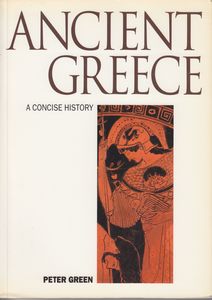  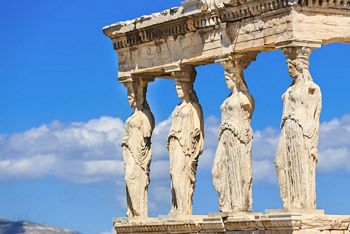 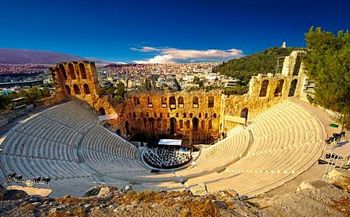 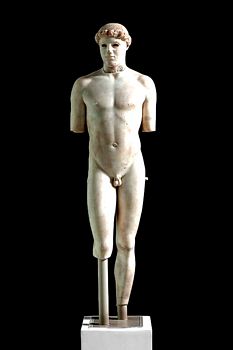 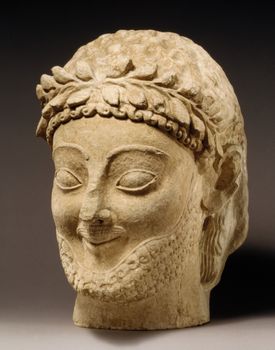 |
Copyright 2008 - 2026 G. Rudolf
